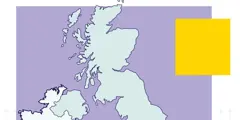Policy and campaigns
As the UK’s leading fostering charity, we work in all four nations to bring lasting change to the lives of children and young people in foster care by carrying out research, influencing decision makers and running public campaigns.
By listening to and working with our members and children and young people in foster care, we create vital change. We undertake timely research and influence fostering policy and practice at every level and campaign to ensure foster care is the very best it can be.







